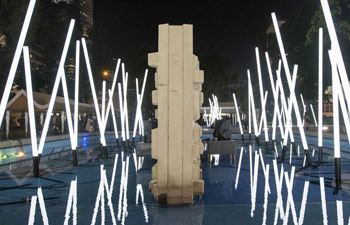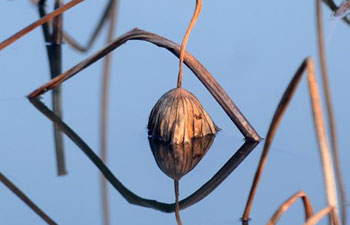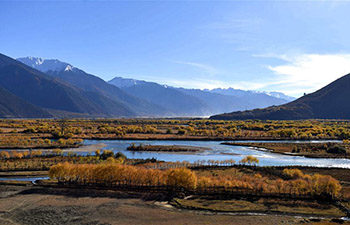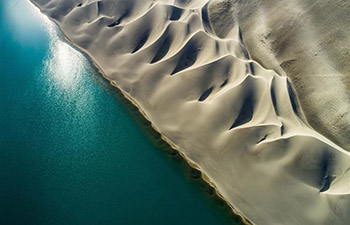by Burak Akinci
ANKARA, Nov. 23 (Xinhua) -- A sunken castle dating probably from the medieval period has been discovered by archeologists hiding deep within Lake Van, in eastern Turkey, the same giant lake made famous in the past by legends of a "monster" lurking in the same waters, reputed to be similar to Scotland's Loch Ness cryptid.
Archaeologists from the Van University announced the discovery with enthusiasm. It is an ancient castle preserved deep within the lake, the biggest in Turkey and the second in the Middle East, in rather good condition.
Tahsin Ceylan, head of the diving team on the project, told daily Sabah "there was a local rumor that there might be something under the water but most archaeologists and museum officials told us that we won't find anything."
"We have been doing research in Lake Van for ten years and the discovery was also unexpected for us," added the diver involved in the underwater quest.
The fortress spans around a kilometer, with walls standing as high as three or four meters, kept in good condition by the alkaline waters of the lake. The fortress's remaining structures range from loose piles of stones to smooth square walls.
There's still a lot to find out about the castle. For example, it's still unclear how far the walls are buried in the sediment at the bottom of the lake. Further archeological research should help to learn more clues about the people who build it.
The researchers first announced that they believe it is a Iron Age relic of the lost Urartu civilisation, also called the Kingdom of Van, which thrived in the region located near modern day Iran from the 9th to the 6th centuries BC.
A MEDIEVAL CASTLE
But experts contacted by Xinhua refuted this theory based on visual assessments, explaining that the castle has most probably been constructed in the Middle Ages and certainly not the discovery of the mythological city of Atlantis as some news outlets have suggested.
"I just returned from an expedition to Van province. These ruins have been presented unfortunately as dating from the Urartu period but it is not. According to our estimates, they could possibly belong to medieval periods," Dr. Soner Atesogullari, head of Turkish Archeologists Association told Xinhua.
"It is generally impossible to date such vestiges before they have been thoroughly examined by specialist, including divers," explained this expert, adding that many civilizations and people had settled around Lake Van through the centuries.
Ceylan for his part explained that the past civilizations named the lake the "upper sea" and believed it had many mysterious things. "With this belief in mind, we are working to reveal the lake's 'secrets'," he said. The archeologists believe rising lake levels slowly submerged part of the city over time, making it invisible for centuries.
Last year the team also discovered a four-square-kilometre field of stalagmites, which they call "underwater fairy chimney" under the lake, and gravestones from the Seldjouk area, some 1,000 years ago.
Earlier this year they announced the discovery of a Russian ship believed to be sunk in 1948.
The team has not been able to ascertain how deeply the walls are buried under the sediment on the lake floor, and more fieldwork under the surface of Lake Van will be required to learn more about the structure - and hopefully the people who lived within.
"It is a miracle to find this castle underwater. Archaeologists will come here to examine the castle's history and provide information on it," Ceylan said. "We have detected the castle's exact location and photographed it and have made progress in our research. We now believe we have discovered a new area for archaeologists and historians to study."

















